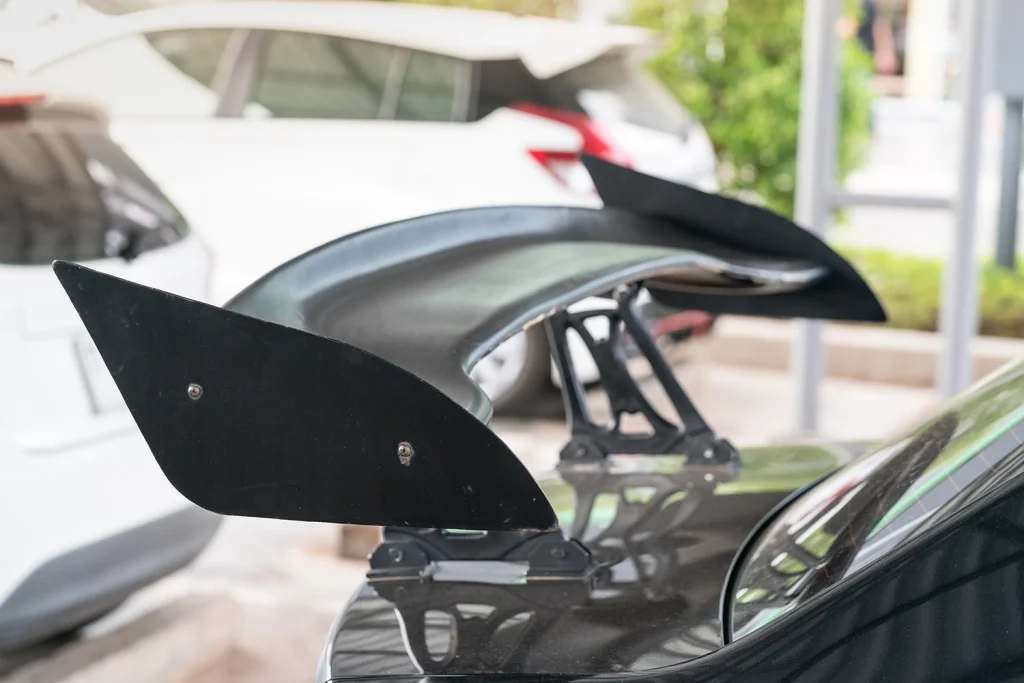Can you modify a car on finance?
Before modifying a car on finance, you must know what is allowed and the consequences of breaking any rules. There have been some shocking cases of people getting their cars taken away with severe consequences, but are these cases rare? Will they lock you up and throw away the key? Is modifying a financed car banned in the UK?
In our ultimate guide to modifying a car on finance, we will dive into what you can and can’t alter, the consequences of getting it wrong, and what to do if you’re already in hot water.
What classes as a modification?
First, we must define what a modification is. You might be visualising tinted windows, aftermarket spoilers, and neon car wraps. However, car modifications can be much more low-key.
Modifications tend to fall into four main categories:
Performance Upgrades: tweaking, adjusting, or replacing parts that enhance performance.
Cosmetic Upgrades: upgrading, changing, or enhancing the interior and exterior appearance, including tinted windows and paintwork alterations.
Additional equipment: think tow bars and roof racks.
Infotainment systems: upgrading, replacing, or adding information or entertainment hardware and software.
Whether you are allowed to make adjustments will depend on your finance agreement, but a general rule of thumb is you are not allowed to modify a car on finance. Let’s find out why.
Hire Purchase Vs Personal Contract Purchase – does it make a difference?
Most vehicle finance plans fall under Hire Purchase (HP) or Personal Contract Purchase (PCP) agreements. Being in one of these agreements is a problem when modifying a car as you are not the legal owner.
Both types of finance include a fee at the end of the agreement that allows you to take ownership. With a Hire Purchase Agreement, this is the Option to Purchase Fee and is usually a small sum at the end of the agreement. With a Personal Contract Purchase Agreement, it will be a balloon payment (sometimes referred to as the ‘optional final payment’ or the ‘guaranteed minimum future value’) and is usually a relatively large amount.
Without paying these fees and receiving confirmation of ownership, you are not the legal owner (you remain the registered keeper) and cannot do with the car whatever you wish, even if you plan on taking ownership at a later date.
Modifying a car I bought through a personal loan
A personal loan is different. Unlike the motor finance agreements above, this is an unsecured loan. You bought the vehicle by transferring the cash to the dealership to cover the cost and gain legal owner status. Therefore, the car is yours to do with whatever you like (within the law, of course).
Are minor modifications okay?
Maybe you’re not thinking of a full remap. Perhaps a new battery is on the cards, and you’re considering a little upgrade. Unfortunately, the smallest of mods can impact your finance agreement. Never take the risk. Pick up the phone or shoot off an email and get the advice of your lender.
Can I mod my car if I can return it to its original condition?
There is a misconception with car finance that as long as you can restore the car to its original condition, you can do with it what you wish. Generally, that is not true. A vehicle must retain its original spec throughout the car finance agreement.
Given that a car value can be assessed at any time, for example, after an accident, it’s unlikely that the ability to reverse a modification would make much difference. After all, many mods can be undone or restored given the right time and money.
Can I mod the car if it increases the value?
Performing any alterations will impact its value. Even if you believe that the modification to your financed car would increase the retail value, it still likely breaches the terms and conditions of your agreement.
Often modifications are personal preferences leading to fewer potential buyers. That’s a big problem for a finance company. The inability to value the new, often unique spec can cause problems should they need to resell the vehicle.
What happens if I modify my car?
The consequences of modifying a car without the lenders’ knowledge and permission can be rather eye-opening. Youtuber Riccardo Senior, the host of LiveLifeFast, found this out the hard way. Going viral after BMW demanded the M4 back upon discovering the mods.
The BMW M4 had undergone several upgrades, including a sports exhaust, a hybrid turbocharger, and methanol injection. BMW caught wind of the changes and immediately took action. Faced with a bill of up to £50,000, Senior took to Youtube to warn his subscribers of his ordeal.
In his video, Senior states, “BMW is demanding the full amount for the vehicle by next week” he explains, “they are threatening to recover the vehicle, […]auction it off and bill me the remaining debt.”
After catching wind of the modifications, BMW sent the Youtuber a stern letter outlining he breached the terms and conditions of his contract for “altering the vehicle without their consent”. Forced to act, Senior paid off the outstanding balance and became the car’s legal owner avoiding further stress.
Modifying your financed car can lead to:
- Demands for the outstanding balance of the vehicle
- Recovery of the vehicle
- Selling of the car at auction and the remaining balance recovered
Modifying a car can leave you in a world of pain, out of pocket and without a car. Often when a modified car gets sold at auction, it will be worth less than the original value leaving you to pay the outstanding balance. If your vehicle is worth more, it’s still bad news as the finance company will likely keep any profit.
Why don’t lenders like modifications?
Finance providers are not a fan of a car mod. Most certainly not the news you were looking for, but what are their reasons?
- Safety concerns – endangering the driver, passengers and other road users.
- Insurance implications – modifications often affect the insurance cover, including invalidation.
- Impact on the value – many mods can hurt the resale value.
Modifying parts can compromise other elements within the car leading to safety concerns. Furthermore, fewer potential customers desire a modified car than the standard spec, reducing the value. The inclusion of modifications alone can make determining the value difficult.
Getting permission to mod your car
Anxious about modifying your car? Don’t dismay. It can be possible in some circumstances. Firstly, you should contact your finance company. Lenders will often say yes to minor changes, but without written permission, it’s not worth pursuing. Upon gaining consent, you should follow their advice and alert any warranty, insurance, or other third-party companies affected.
I’ve already modified my car. What will happen if the lender finds out?
Firstly, never keep modifications from your finance provider. If you’ve already made alterations, you must alert the lender as soon as possible. You may have breached your terms and conditions by doing so. In this situation, you can call or write to the lender and explain your mistake. It is up to the lender how they deal with this, but it would not be unrealistic to expect them to ask you to take ownership and pay the settlement figure. If unable to pay, they can take the car back to sell at auction and recoup and losses.
Modifying a car on finance summed up
To answer the question, “Can you modify a car on finance” the answer is no. Until the finance is complete and you become the legal owner, you are not allowed to modify a car. You must gain written permission for the car finance lender before making any modifications, no matter how small. The best rule of thumb is to wait until your finance plan ends before altering any part of your vehicle, and always ensure you read your car finance agreement before signing.

